Drywall
Drywall, also known as gypsum board, sheetrock, or plasterboard, is a popular building material used to create interior walls and ceilings
Drywall, often referred to by brand names like Sheetrock or gypsum board, is a vital construction material used in most modern homes and buildings. It replaced older methods like plaster and lath, offering faster, cheaper, and more efficient wall construction. Here’s a deeper look into the properties, benefits, installation process, types, and usage of drywall. Drywall is an essential component of modern construction due to its versatility, affordability, and ease of use.
Pristine Construction provides solutions to all of your drywall contracting needs. From new drywall installation, to drywall repair/patching services, to water damage repairs, we can handle just about any drywall service you can think of.
Here at Pristine Construction, our goal is to help protect the things that matter most to you: your family and your home. With JMK Contractor, you’ll know that your children, pets, and loved ones can safely be in your home at any time giving you peace of mind. We use the best products and stay up to date on the latest drywall solutions. We keep quality and reliability at the forefront of every repair and installation and treat every home like our very own. Our drywall contractor team can handle any type of drywall services that your home may need
Types of Drywall
Moisture
Drywall is most commonly used for high-moisture areas like kitchens or bathrooms. You will also hear this referred to as Green board. The only difference from standard wallboard is that the paper backing used for these types of boards has a much higher moisture resistance than what is used for standard drywall.
Fire Resistant
Drywall is the most common type of board you will see installed. Special types of fibers and other such fire-resistant materials are added to the core of the board in order to create more fire-protection than your standard sheetrock. You will generally see this type of board installed behind furnaces, around fireplace mantels, and behind pretty much all major electrical or gas appliances in your home.
Mold Resistant
Drywall is designed to repel mold as much as possible, but it does not necessarily make it altogether impossible for mold to develop, just lessens the chances of it happening. This is very important to install in any high moist areas of your home or business.
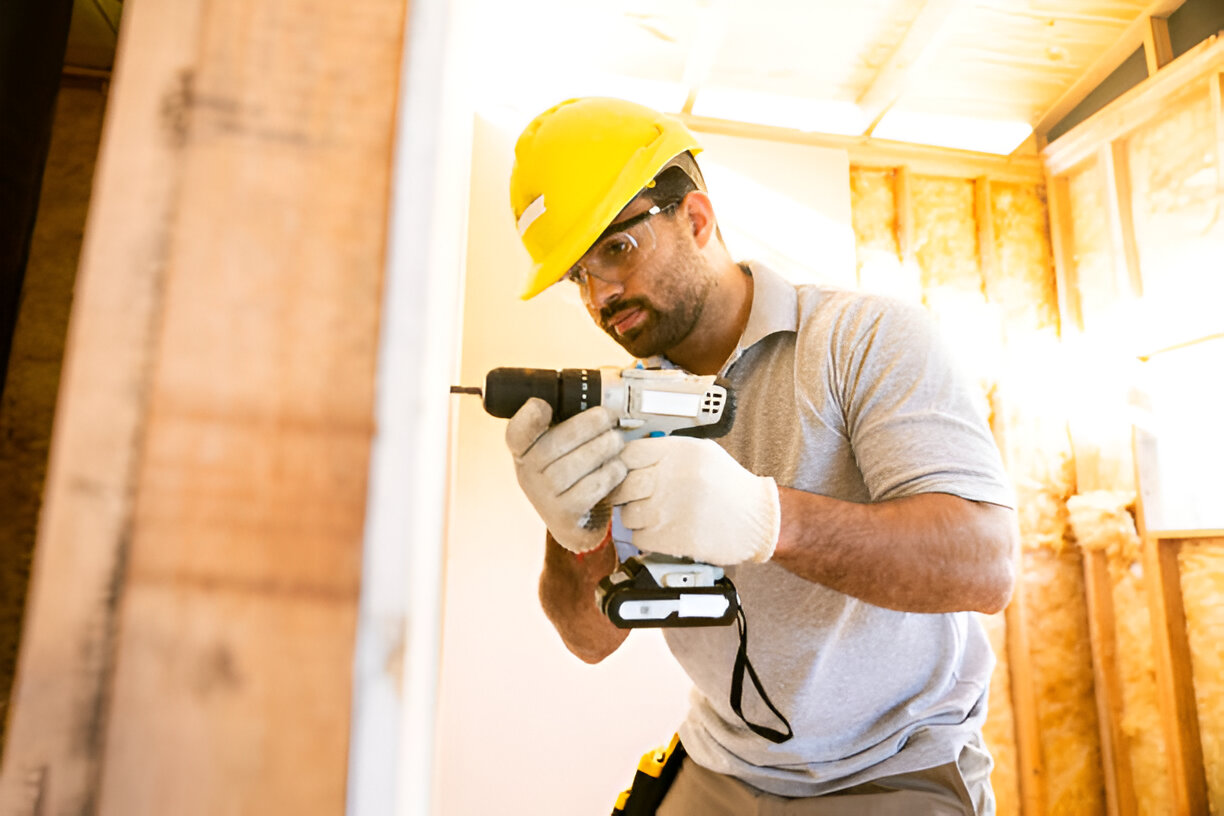
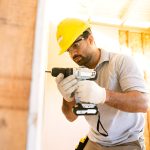
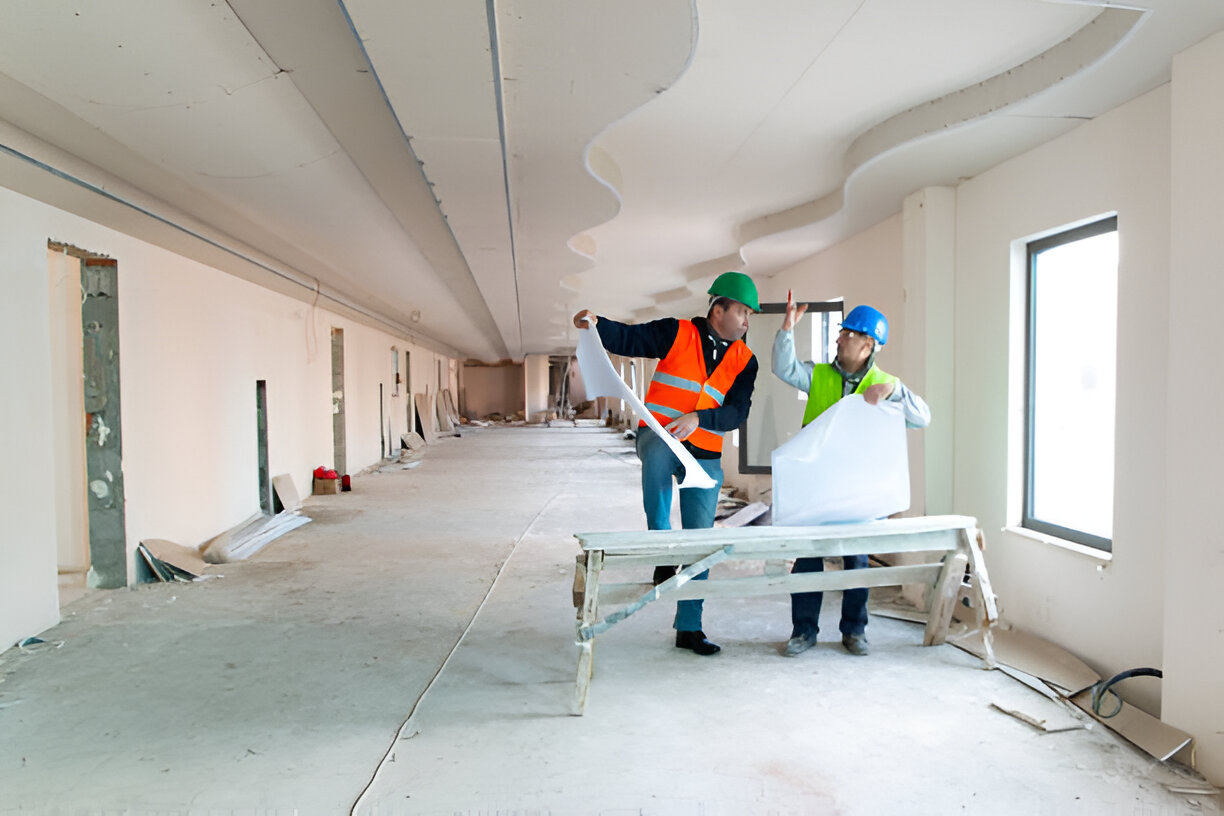

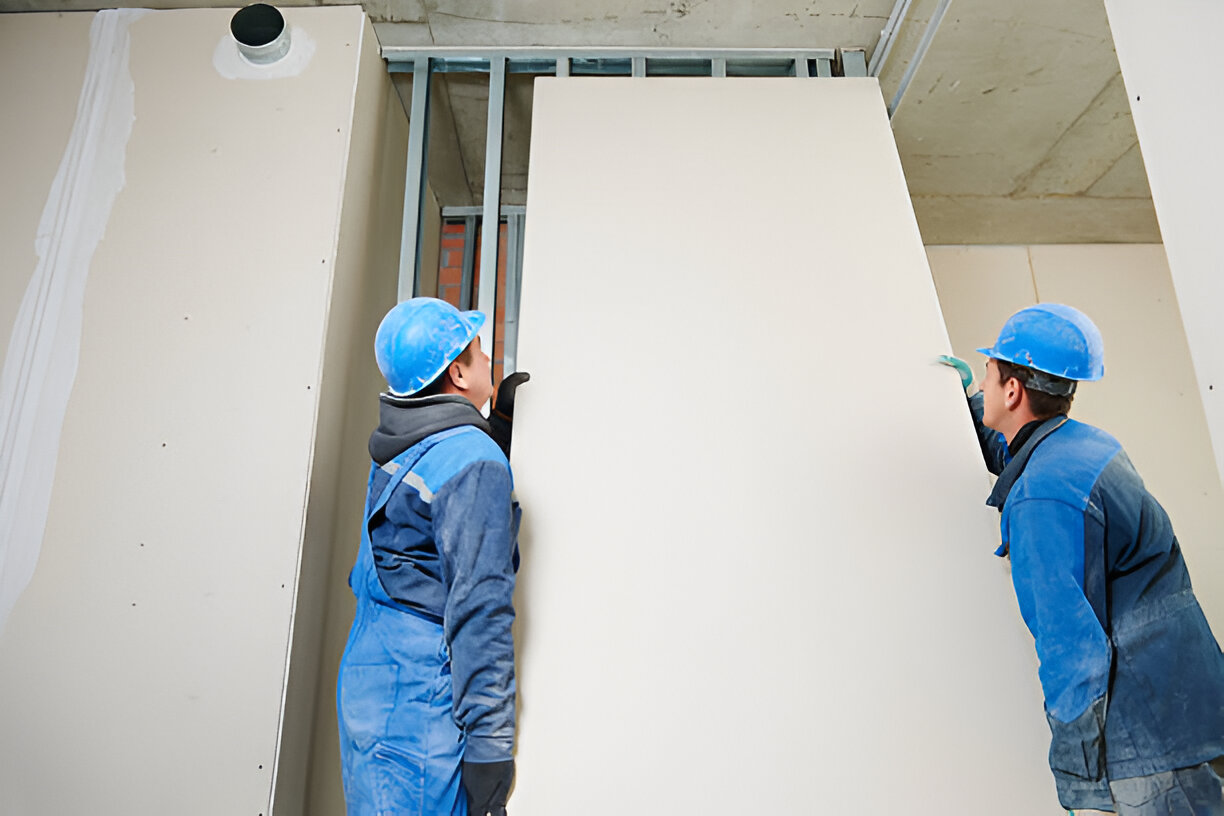
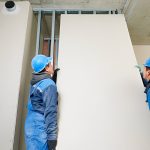
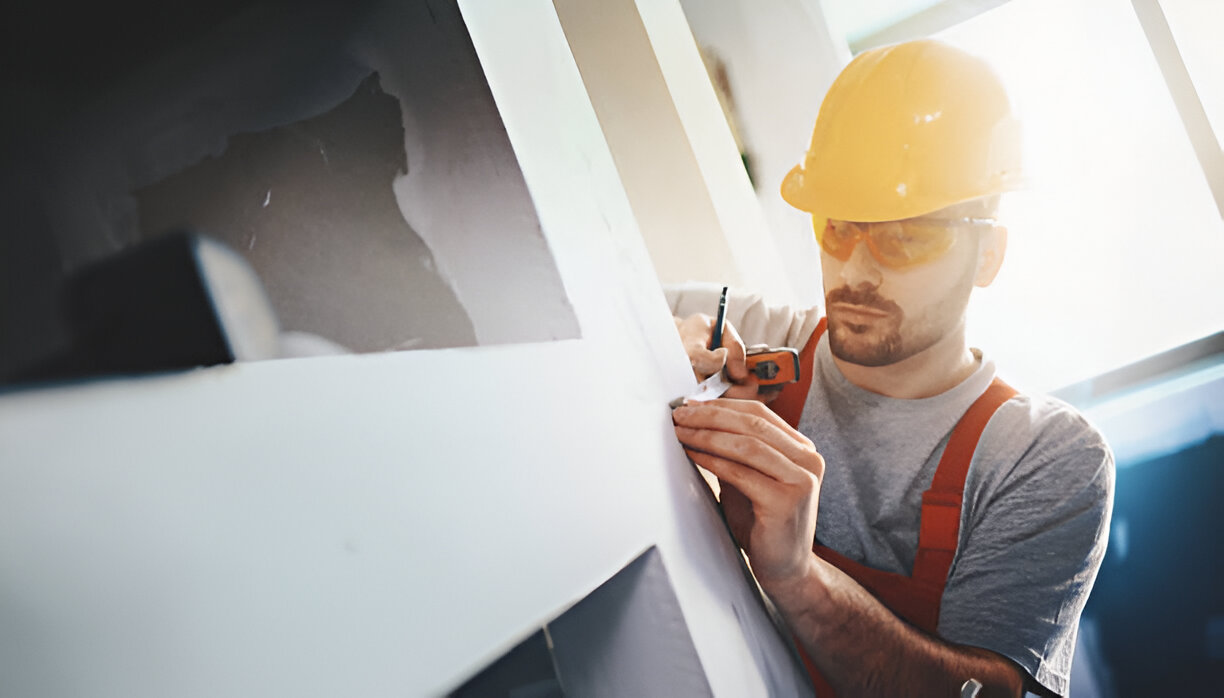
Key Benefits of Drywall
Cost-Effective:
Drywall is relatively inexpensive compared to other materials like plaster or wood paneling. Its affordability makes it the most common interior finish.
Quick and Easy Installation:
Installing drywall is much faster and simpler than traditional plastering, saving time and labor costs.
Smooth Finish:
Drywall provides a smooth surface that can be easily painted, wallpapered, or textured, offering flexibility in interior design.
Fire Resistance:
Gypsum’s fire-resistant properties make drywall a safer option for homes and commercial spaces. Certain types of drywall, like Type X, provide additional fire protection.
Soundproofing:
Certain types of drywall are designed to absorb and block sound, improving the acoustic quality of spaces.
Moisture and Mold Resistance:
Specialized types of drywall (e.g., green board, purple board) are moisture-resistant, making them ideal for bathrooms and kitchens.
